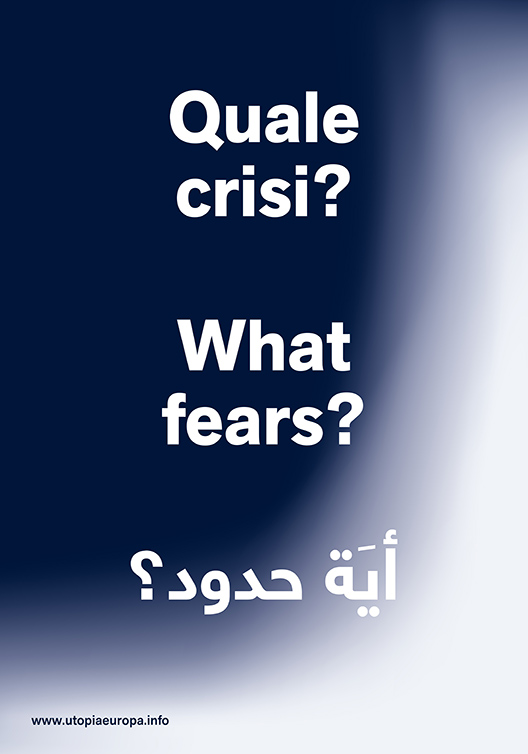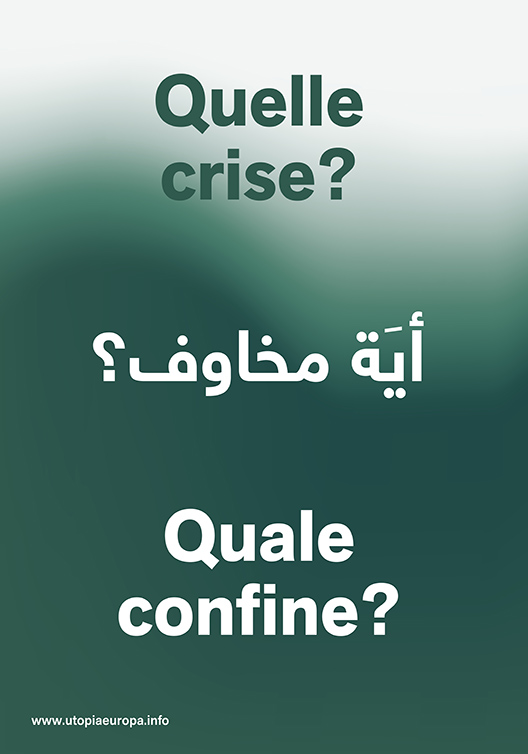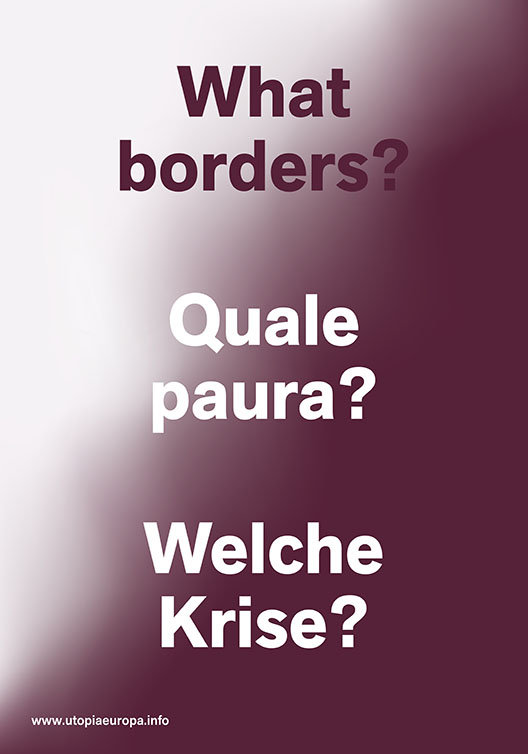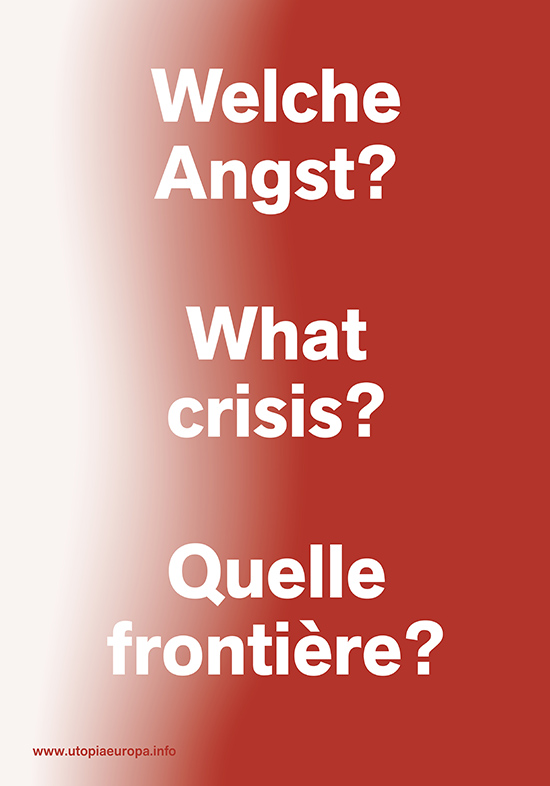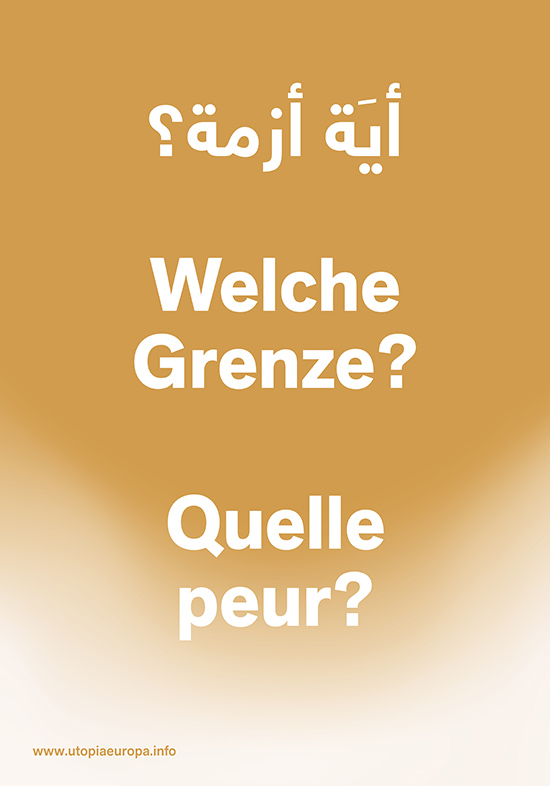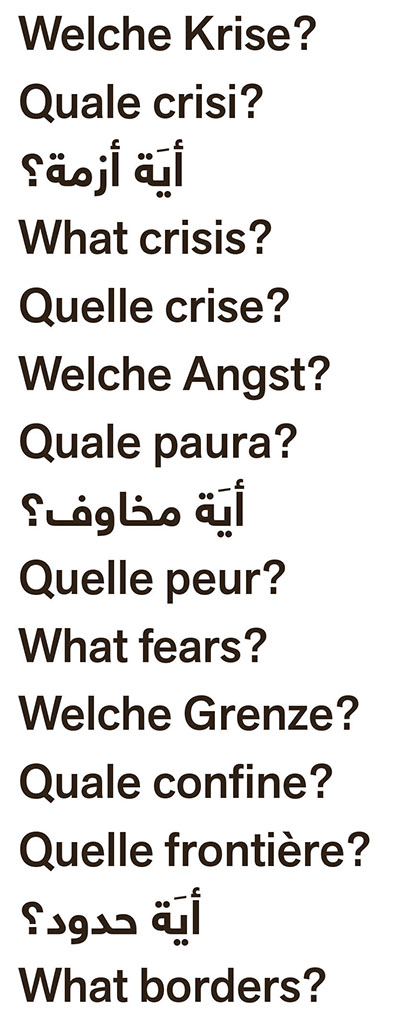
If in days and times like this, circumstances take over and developments rapidly change, to such an extent that they cannot be fully grasped, it becomes hard to speak. It is also tough, when sadness and fear don’t leave day to day life and come to rule our world. And it indeed gets even more difficult, when opinions trigger speedy debates and discussions, as if they would get paid for them.
Still, conversing can maybe be possible, as soon as it’s on the lookout for an open dialogue that creates questions out of the very process of thinking and anchors them within society itself. It is maybe in a type of ‘cultural acting’, which investigates the world and its political dimensions, where the urgency of speaking lies? And maybe in it also lies an act of public responsibility?
The project “Utopia Europe”, an initiative by Literatur Lana, Lungomare and NIDS, developed as a reflective contribution to the questions and regulations that arise through the process of migration within Europe. The project does not want to impose a demand for reprehension, instruction nor conversion. It rather wants to formulate and tackle the insecurities and experiences of a continent in profound change. Without promising a solution, it will have a civil society of mutual respect and humanity in mind, through the prospect of an open ‘becoming’.
We heavily rely on the concept of ‘utopia’, which has represented a framework of thought in European history as well as cultural history from Antiquity onwards. If ‘utopia’ on one hand is the ‘topos’ of a non-contextualized localization, it is thus a constant possibility of ‘being-different’ and ‘seeing-different’; on the other hand, if a ‘utopia’ drafts the vision of a better society and therefore has the formulation of the future in its spotlight, that is when utopias proclaim, in one way or the other, a ‘goodbye’ of existing orders. But what happens when utopias get disbanded, as what seems to be happening at the moment to the idea Europe. What is the alternative draft? To whom and to which world views do we hand the idea of a better society? Maybe there is a chance to play one’s way through these or similar questions. If experimented with, by the means of conversation and narration, they just might be able to present us with conceivable and liveable options to our complex present.
-
A poster campaign will follow the topic ‘utopia’, where each of the three institutions will pursue the topic through different actions and events. The posters will tackle the terms which are key to our presence and the terms will start to blur under the weight of their meaning.
At certain times, these words have the ability of naming an experience, and sometimes they move away from ’the experienced’ in a way that they belong to and lose the capacity of dealing with it at the same time. At other times, the words are followed by a particular type of thinking, which infiltrates into the present and appears, all of a sudden, as a narrative. What is it that terms and notions do with us and the society we live in? And what are they telling us, when they come to speak in a multiplicity of voices and languages?
A project by:
Literatur Lana
Lungomare
Neues Institut für
Dramatisches Schreiben
What crisis? - What fears? - What borders?
How do words dominate our look at the present?
How do they dominate us?
Who determines the words?
What lurks behind the words?
With: "What crisis? What fears? What borders?" - we are trying a new examination of words that are currently omnipresent and that seem to shape our present as if they are forces of nature. We intent to hold them in front of us and ask: Are these really the right words? What other words could help? What words do I recommend for the present time and the way we are handling it?
Words determine our view of the present time – and also how we react to it. By being aware of a crisis? By being afraid? By registering borders?
How we talk about our present will soon become our history. And history is what gets written. Which history should be narrated?
"What crisis? what fears? what borders?" – is conceived as a platform to inspire new visions, new perspectives for a Europe not only of crisis, but also of malleability.
We are looking for answers to questions like:
Crisis: What constitutes the crisis? Who alleged the crisis?
Is crisis just another word for change?
Fears: Which fears are we talking about? What do we fear?
Borders: The shutting of borders will change the concept of Europe radically.
Will the fortress Europe, which was liberated in summer 2015, be boarded up again?
What other visions do we have?
Maxi Obexer, Neues Institut für Dramatisches Schreiben
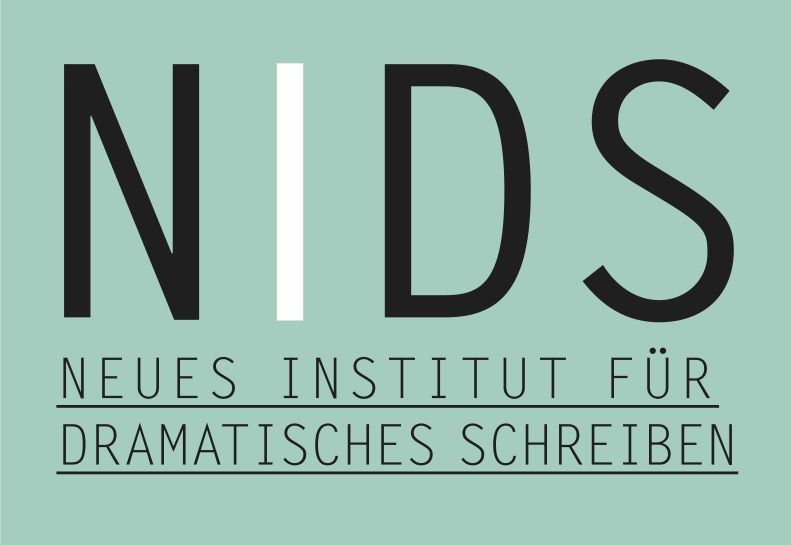
Berichte aus der LAST
by Musaab Al-Tuwaijari
Reschenpass
by Toni Bernhart
Welche Angst?
von Tania Folaji
europa, diese flüchtende
by Catherine Perret
Die Angst ist gemacht
by Sasha Marianna Salzmann
Welche Krise?
by Sivan Ben Yishai
A special thanks to the supporters of the project:
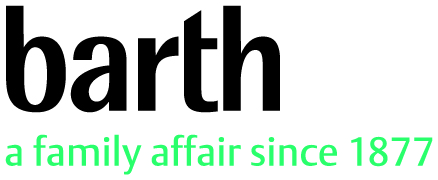
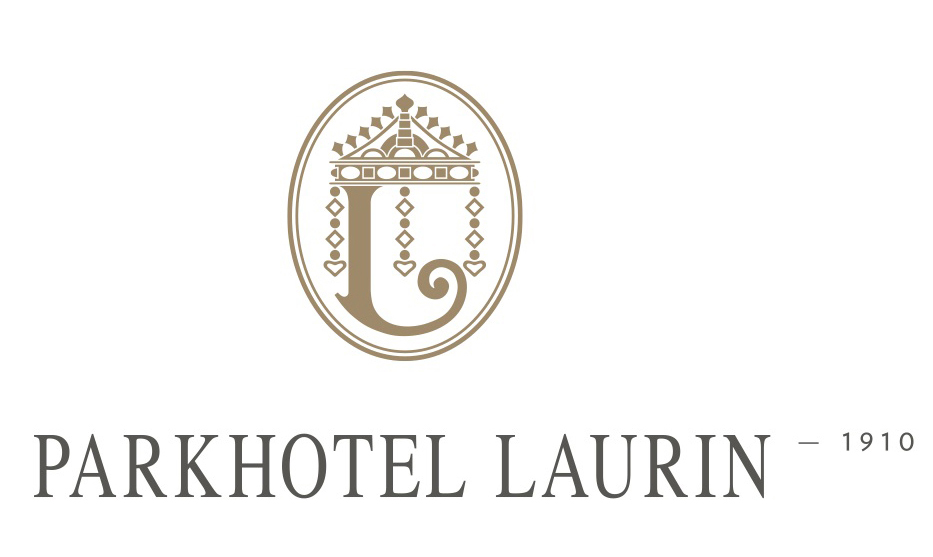
Colophon
Contents: Literatur Lana — Lungomare — Neues Institut für Dramatisches Schreiben
Graphic design: Lupo & Burtscher
Contacts: info@literaturlana.it — info@lungomare.org — kontakt@nids.eu





